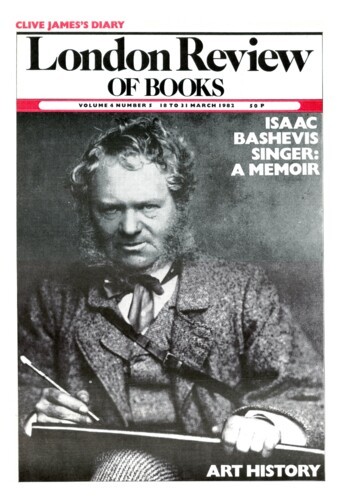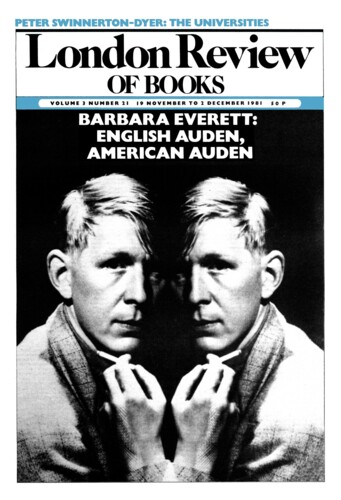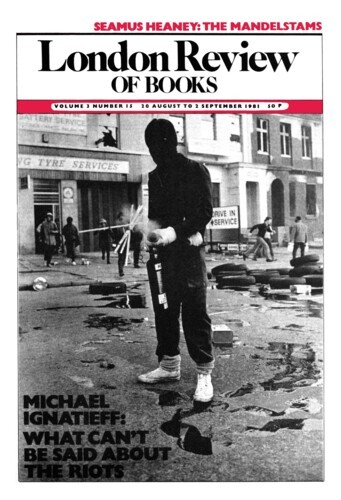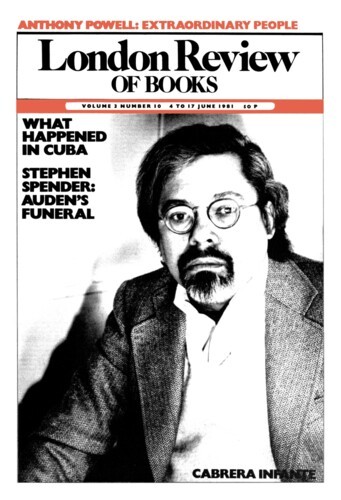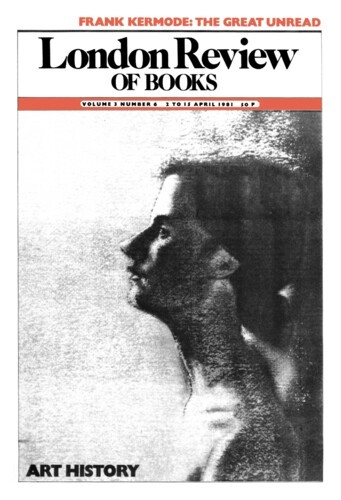Aliens
Peter Burke, 18 March 1982
‘India and parts of Ethiopia teem with marvels,’ wrote Pliny in his Natural History. ‘The Gymnosophists stay standing from sunrise to sunset, gazing at the sun with eyes unmoving, and continue all day long standing first on one foot and then on the other in the glowing sand. Megasthenes states that … there is a tribe of human beings with dogs’ heads, who wear a covering of wild beasts’ skins, whose speech is barking … Ktesias describes a tribe of men called Sciopods (Umbrella-Feet), because in the hotter weather they lie on their backs on the ground and protect themselves with the shadow of their feet.’ Pliny went on to describe the appearance and customs of Amazons, Anthropophagi, Brahmins, Cyclops, Pygmies and other peoples, including the Astomi, who lack mouths but live by smelling apples, and the Blemmyae, whose heads ‘do grow beneath their shoulders’. Pliny’s account fascinated Medieval artists and writers: there are illustrations of the Apostles going and preaching ‘to all nations’ which contain representations of these ‘monstrous races’; and some Medieval lives of St Christopher describe him as belonging to the Dog-Heads (Erasmus, on the other hand, suggested, tongue in cheek, that he was a Cyclops).
